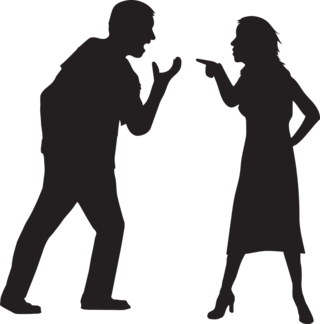Anger
Acting on Impulse
Why do we continue doing things that we don’t intend to do?
Posted March 31, 2022 Reviewed by Abigail Fagan
Key points
- Everyday snap judgments are made by the impulsive mind without processing information.
- Individual behavior is best understood as the outcome of a struggle between an emotional system and a reflective system.
- The choice of an impulsive individual is highly influenced by external stimuli, pressures, and demands.
We sometimes behave as if we had two selves. For instance, at the beginning of a meal, I might have decided not to have dessert (prefer health to indulgence), but when the time comes, I find that I have somehow changed my mind (prefer indulgence to health). However, in my own calm and reflective mind, I place more importance on health than the desert. There appears to be a gap between what we prefer to do and what we end up doing.
An important idea in behavioral economics is that our behavior seems to be controlled by a narrow-minded impulse that cares about immediate gratification and a farsighted thinking mind that is concerned with long-term satisfaction. When we are calm, the deliberative mind guides slow rational thinking and choices. This is the self that we are most aware of and prefer to present to the public.
The thinking mind is typically effortful. In contrast, the impulsive mind acts spontaneously without consideration for the broader consequences of the action. The everyday snap judgments (jumping to conclusions or reacting defensively) are made by the impulsive mind without processing information.
This important insight about the human mind explains why we are conflicted, inconsistent, and why we do foolish things. In these moments we often use our deliberative mind to justify or rationalize our behaviors (blaming others or denying). The inconsistencies in the mind give rise to self-control problems. The essence of the self-control problem is mainly about the conflict between two selves (e.g., one who wants to be thin and the other who wants to eat). A self-control problem implies that individuals are acting against their own better judgment of what is in their long-term interest.
The choice of an impulsive individual is highly influenced by external stimuli, pressures, and demands. For example, seeing and smelling fresh-baked cookies make one reach out before realizing one is on a diet. We then ask: “What was I thinking?” Sadly, the answer is: Not too much thinking was involved. Yet we might be unaware that our environment influences our behavior because stimuli can activate goals and cravings. This explains why it is easier to change our environment than to change our habits. Change the environment and then let the new cues do the work.
Strong emotions (anger and jealousy) can provoke knee-jerk reactions that may sometimes be difficult to reverse. For instance, angry decision-makers typically process information in distorted ways, fail to consider alternative options before acting. Anger triggers optimism about oneself. It triggers a bias toward seeing the self as powerful and capable. Anger is often a mask for helplessness, and it is a way of reasserting control and self-respect.
Emotions are relatively transient. What comes up often comes down. A typical emotional response involves a quick rise lasting for a few minutes and then followed by relatively slow decay. For example, anger usually lasts for more than a few minutes, but rarely more than a few hours. But people tend to mispredict the short duration of emotional experience.
However, we are not destined to grab immediate rewards we will later regret. There are ways that individuals can reduce their shortsighted behaviors. A well-cultivated self-awareness is a key to preventing acting impulsively. It helps us to observe our two selves in real-time and make choices based on our long-term goals. In the words of noble laureate Daniel Kahneman, life seems to consist of the struggle between short-sighted self and long-sighted self, and to balance these two is an art.



